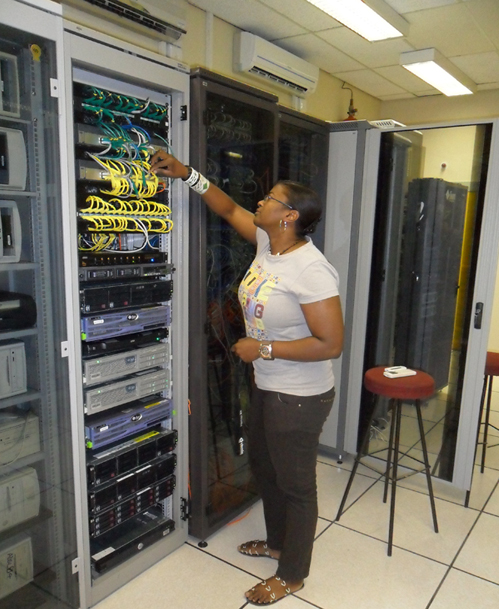
Maria Mweshikolela Ausiku pictured at work at Polytechnic, Windhoek
1. Tell us about yourself?
It all started at Okayekongwe (poNhimbu) adjacent to Outapi town where I was born in the late 70s before moving to my current village Oshondo. I grew up with my mother and siblings. Being the youngest in the family, I was tasked with livestock herding after school and did all the usual household chores. Having grew up during the war and not far from the military base, I experienced the life before independence (omakakunya, oumboofola nomakasperi). May be I should register as a liberation struggle kid, I suffered too na ndi pewe ekutu.
2. Where did you go to school?
I attended grade 1 to 5 at Anamulenge primary school (kolaele) as it’s affectionately known. I went to Okavu Comb. School (now J.Pandeni) for grade 5 to 10. After passing grade 10, I went to Etosha Secondary School, Tsumeb in 1997 for grade 11 & 12. In 1998, I registered at Unam for B.Commerce but transferred to Polytechnic after 1 year. I obtained NHC in Accounting and didn’t complete the diploma. That’s where my accounting ambitions stopped and I have since moved on to IT. I attended Lambeth College 2004-2005 in London for a Diploma in IT System Support and went to University of Derby to do my undergraduate studies in Computing.
3. Where are you working and what do you do?
I am currently working at the Polytechnic of Namibia as a PC Support Officer. I provide all sorts of IT support to both students and staff. Apart from that, I also work for my Xtreme Tech cc offering different IT services. www.xtremetech.somee.com
4. In 2002 you left for the UK, why did you take such an adventurous trip taking into consideration that you didn’t know anybody there?
I always knew that I will someday go the UK, it’s just a feeling I had. I can see you all raising your eyebrows. During those years, the UK government had a scheme for commonwealth countries youth to go over on a working holiday. I heard about a few people I knew who went and decided that it was time for me to go. It was such an exciting opportunity and didn’t worry too much about not knowing anyone there. I have always been an independent person.
5. For how long did you stay in the UK and what did you learn from there as a person who came from a developing country and from a rural village for that matter?
I stayed for 7 years from 2002 to 2009. It was a whole different world from what I left behind in Namibia. The country literary doesn’t sleep. People work around the clock (different shifts). You can have up to 3 jobs and will be hopping between different shifts. Here the day starts at 8am and ends at 5pm, wait for month end pay and this is why poverty is high. Most Namibians don’t do much to get out of poverty. Life here is too laid back. Over there, no job is below you. You can be a cleaner or security guard and nobody cares as long as it pays the bills. Africans have a very wrong mentality when it comes to jobs. They think if you work in an office you have made it in the world. And they will laugh if you are a factory worker or security guard. Over there a security guard or bin man earns more than e.g. an office administrator. In Africa, we waste time minding other people’s business. Imagine if a 40yr old married woman is seen dancing in a night club in Windhoek (wuwu,what a scandal). In the UK you can rock it whatever age/marital status (grinning). One more thing, British people don’t put ketchup (etama) on rice/pasta, it’s mainly used for chips and pies. Something Wambos will find hard to try. Lol
6. We are struggling to speak English here in Namibia in your own view do you think if those of us who want to improve our English go to Britain for a year when we come back we would be proficient in English?
Not necessarily as they speak different dialects in different parts. You will end up spending the 6 months just trying to grasp the English they speak. But after a while you will learn and improve. But given the diversity of the population you will have to live in a small town where there aren’t many immigrants to get the proper and correct English. If you are in London or any major city, you have Caribbean, Nigerian, Cockney etc. accents which will end up worsening your Namlish. The northerners (Manchester, Liverpool and Newcastle) have a different accent, that’s why people hardly get what Wayne Rooney or Steven Gerrard is saying in TV interviews after matches. Then you have the Welsh and Scottish, I will leave it at that.
7. Are there people in the UK who cannot speak English properly?
There are a lot of immigrants who speak little or no English at all. But you will never find a British person laughing at someone who speaks broken English. They totally acknowledge you for trying to speak a foreign language. Here in Namibia, where it’s not even our mother tongue they will laugh instead of correcting you. And if you take them to England, they will actually realize how wrong and far their Namlish is from the real thing and would hardly understand a thing.
8. I noted that people in the UK like soccer so much which are the main teams in Britain and what is the most popular one?
Teams are only rated mainly because of where they finish in the league or what trophies they win. But each football fan there considers their local team the main one. Some teams were considered main 30 years ago and now are in the lower leagues. It’s only the outside world who decides which one is more popular because they only see few teams on TV. Fans are devoted to their local teams no matter what league they play in.
9. Which team do you support and why?
I support Ipswich Town FC, which plays in the 2nd tier, the Championship. It was the first team I watched live and was working for them on match days, so I attended all their home matches for a season. I lived in Ipswich for 2 years and have ever since been hooked on them. I used to support Man United before I went to the UK. But when you attend live football, it’s totally different from watching on TV. You get attached to the team easily.
10. Have you ever been at those sport stadiums that I use to see on TV and if so was it safe to be there?
Oh yeah, the biggest of them all I have been to is the new Wembley Stadium, the national stadium. I went to see England vs. Croatia. I have been to Stamford Bridge (Chelsea) and the old Arsenal Higbury Stadium. Then my beloved Portman Road (Ipswich Town). It’s very safe and organized to go to the stadiums. As all fans travel by train and coach, it’s easy to get around. There are entrances all around the stadium and you go through the one on your ticket which only leads to your seat section. The drinks are only sold in plastic cups and not allowed in seating areas. A lot of police and security officials are involved to keep order and rival fans apart. Saturdays, towns are deserted as everyone is at the football ground.
11. Why can’t people watch soccer on TV instead of going to the stadium in the UK?
It’s like religion, you can’t settle for church service on TV over church service in person. The atmosphere at the football ground (that’s what they call stadium) is brilliant. All the singing and drinking and having to shout at the players and referee in person, make it worthwhile. Sometimes unpleasant words are shouted. And you need to chant discouraging words to the rival fans (best part). There are limited number of live matches on TV(2/day), unlike here. So you are forced to go to the ground.
12. I see a lot of Namibian gathering at the so-called sports bar religiously watching soccer on TV especially at weekend and yet when we play we got beaten. Why can’t we play the way we see people playing on TV?
We are far from that, it all starts at the grassroots. Our game is too slow and physical and they like showing off. A player will spend 20 sec dribbling, which is way too long to keep the ball. Europeans teams have youth academies where they learn tactics from young age. You don’t just join a team at 16; you have to come through ranks.
13. From your own experience do you think men and women in the UK have equal opportunities when it comes to studying and employment?
Definitely, opportunities are equally there, just a matter of taking it. But you still get certain male dominated jobs like city bankers. I guess it has to do with family life, because if you are a woman with kids, it’s hard to do long and unusual hours required .e.g work on Tokyo/USA time because of the investors/customers.
14. Is there a difference between staying in Windhoek and in any other city in the UK in terms of living standards? Are people more independent or dependent on each others?
A big YES, where do I start? I will speak about London where I lived for 5 years. It’s a bit expensive but you get a high living standard. Cost of living in Namibia is now ridiculously higher for what you get. Most of the things are at your convenience in London. You don’t need a car to get around, public transport system is good. Most shops are open 24 hrs, customer service is excellent, and you can have your milk delivered to your door and leave the money outside without someone nicking it. You can leave your window open and no one will break in.
If you get a taxi you pay just one fare even if you are 4. There are hardly queues anywhere since most things are done online from banking, buying your bus ticket to grocery shopping. Even supermarkets have self-service tills. People are quite independent as they move out of parents’ house mostly after university. When you are in a big city like London, it’s every man for himself.
15. If you are given an opportunity to make concrete changes in Namibia concerning the use of ICT what are you going to change so that the digital divide is narrowed?
Firstly I will make it accessible by introducing the basic computer skill training at all schools and community libraries. To make it cheaper, using open-source software and virtualization technology is the way to go. The ISPs need to lower the prices for internet, it’s unbelievably high.
16. What are basic skills that people in Namibia especially in rural areas need to acquire in order for them to benefit from the use of the internet?
They just need to understand and know how to operate the PC, type and use the internet. Once they understand what the internet can do and how far it reaches then they will benefit especially through social networking.
17. If you were the Minister for information and communication technology what will you do to move the country to another level?
I will suggest that computer studies is incorporated into the school curriculum for all secondary schools. The need to introduce open-source software like Linux is important. Pupils need to know how to operate computers on a command prompt and write programs. At the moment we have a mouse-clicking generation who can’t use a PC without a mouse. Since Linux is free, it will save the government a lot of money they spend on Microsoft and other proprietary software. (Ok I admit I am a Linux fan, but it’s the truth). Working with ISPs and telecom companies to make sure most of the country is covered by cellular and TV signal. There is no point rolling out 4G which will cover only one city, while we can’t get 3G in Outapi yet. (onda hanya nayi)
18. Are you currently studying?
I am currently in final year of MSc Computer Science at Staffordshire University, England through distance e-learning. I am busy trying to come up with a thesis topic, so if anyone has an idea or computer science area they want research done, let me know before 1st March 2012.
19. Is there something that you would like to tell the youth in general?
Ok youth, I am going to sound like you mother now. You don’t know it all as you think. You are not wiser than the elders just because you speak English/Afrikaans or you are on facebook. If you listen to your elders’ advice, you will go a long way in life. Your life will become what you make of it. Put your education first or if you are business minded then make it a reality. You won’t all end up at university, so find opportunities they are all over. Stay away from DRUGS and drink moderately (this goes to young & old).
Thank you so much Maria for your new insight.

Maria at Etosha Secondary School
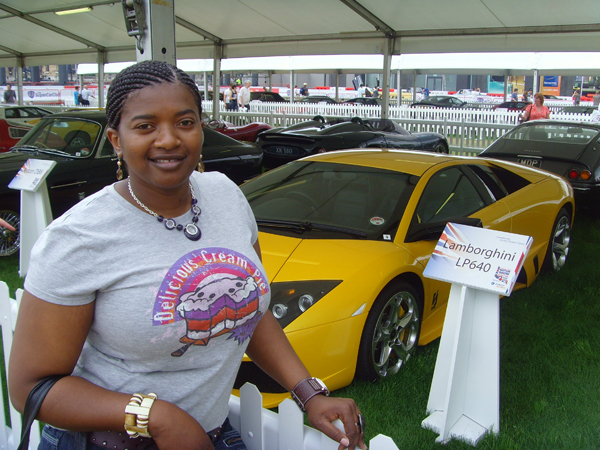
British Motor Show
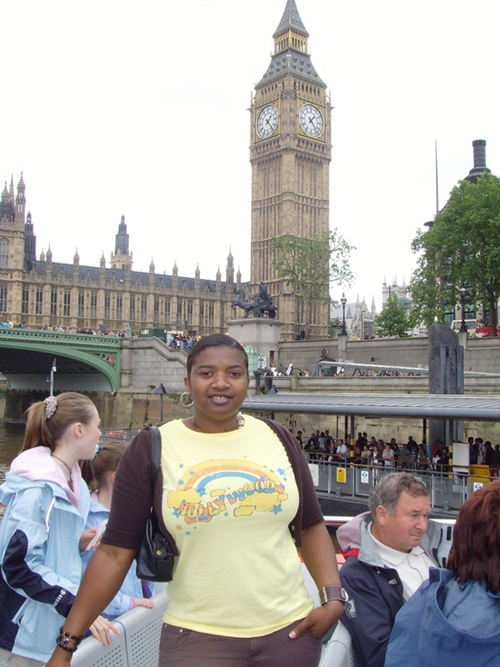
House of Commons
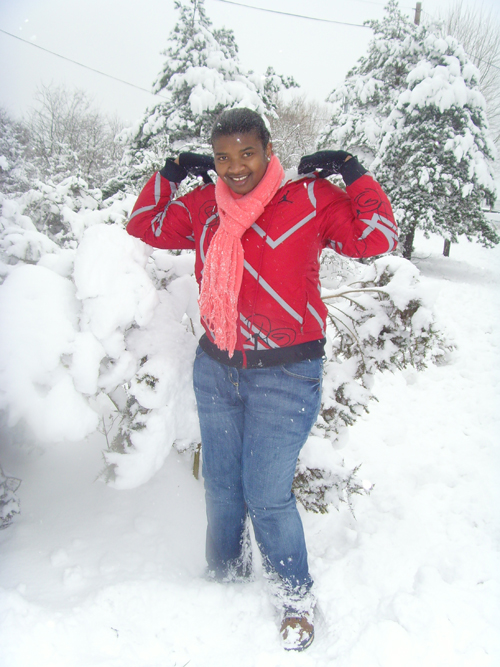
Snow 132
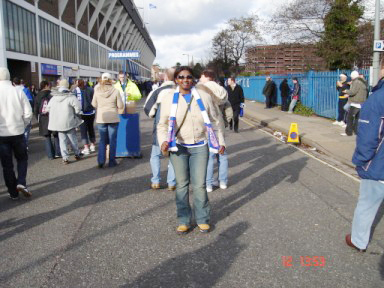
Ipswich Tow Stadium
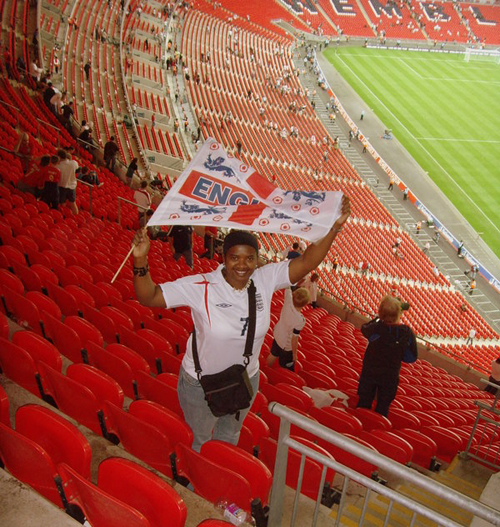
Wembley Stadium
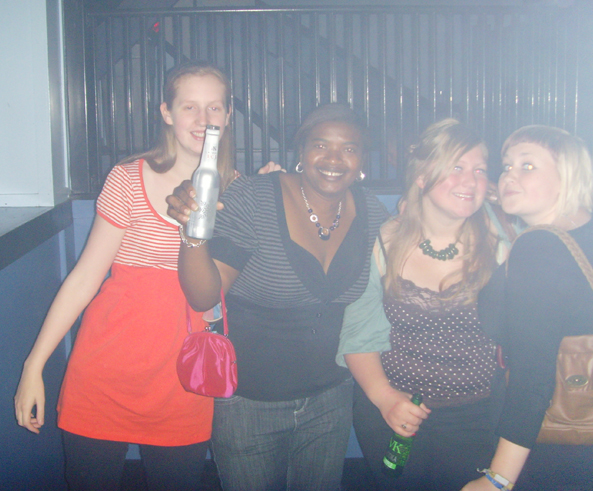
WIth friends at the University of Derby
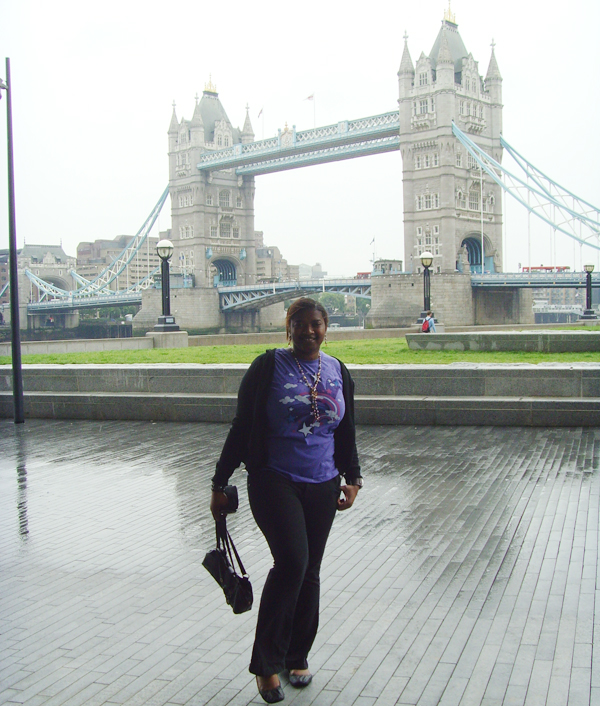
Tower Bridge
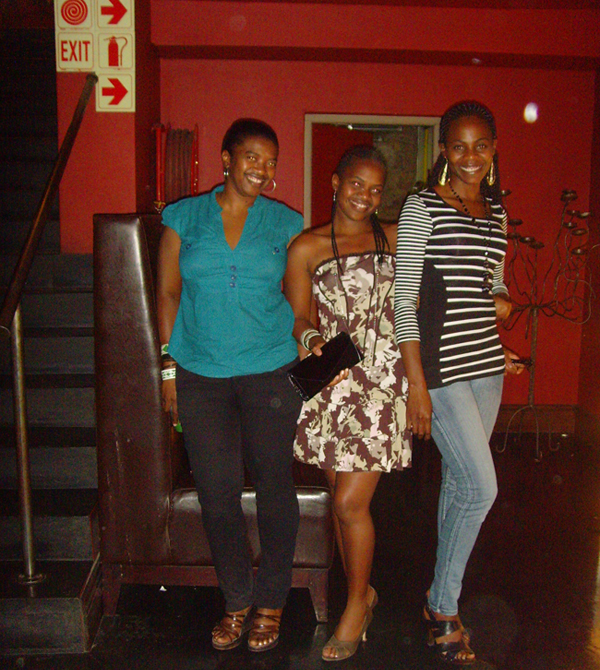
Out with friends in Windhoek, Susan and Namene
|

